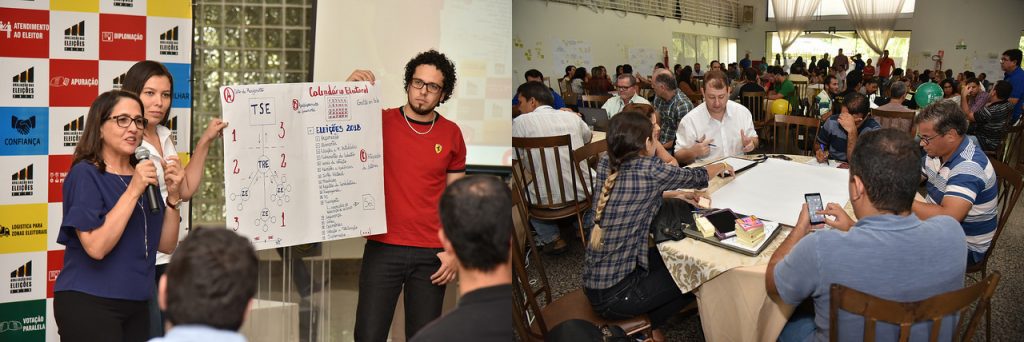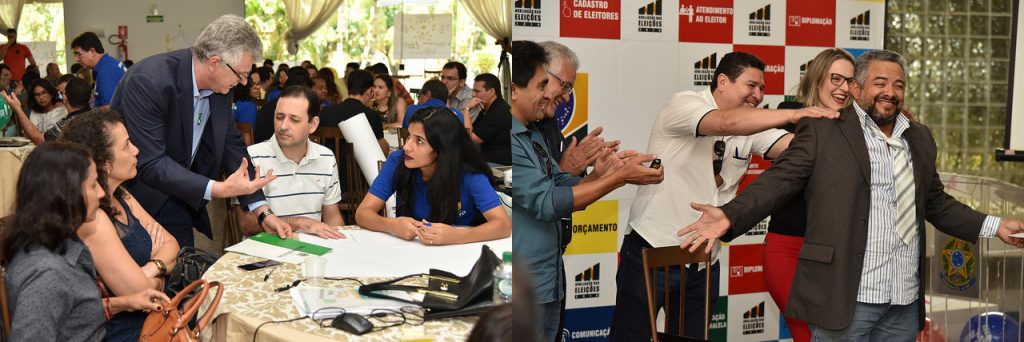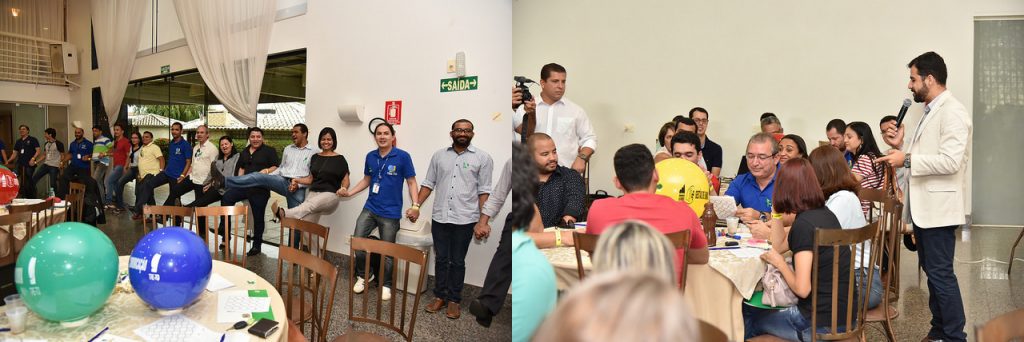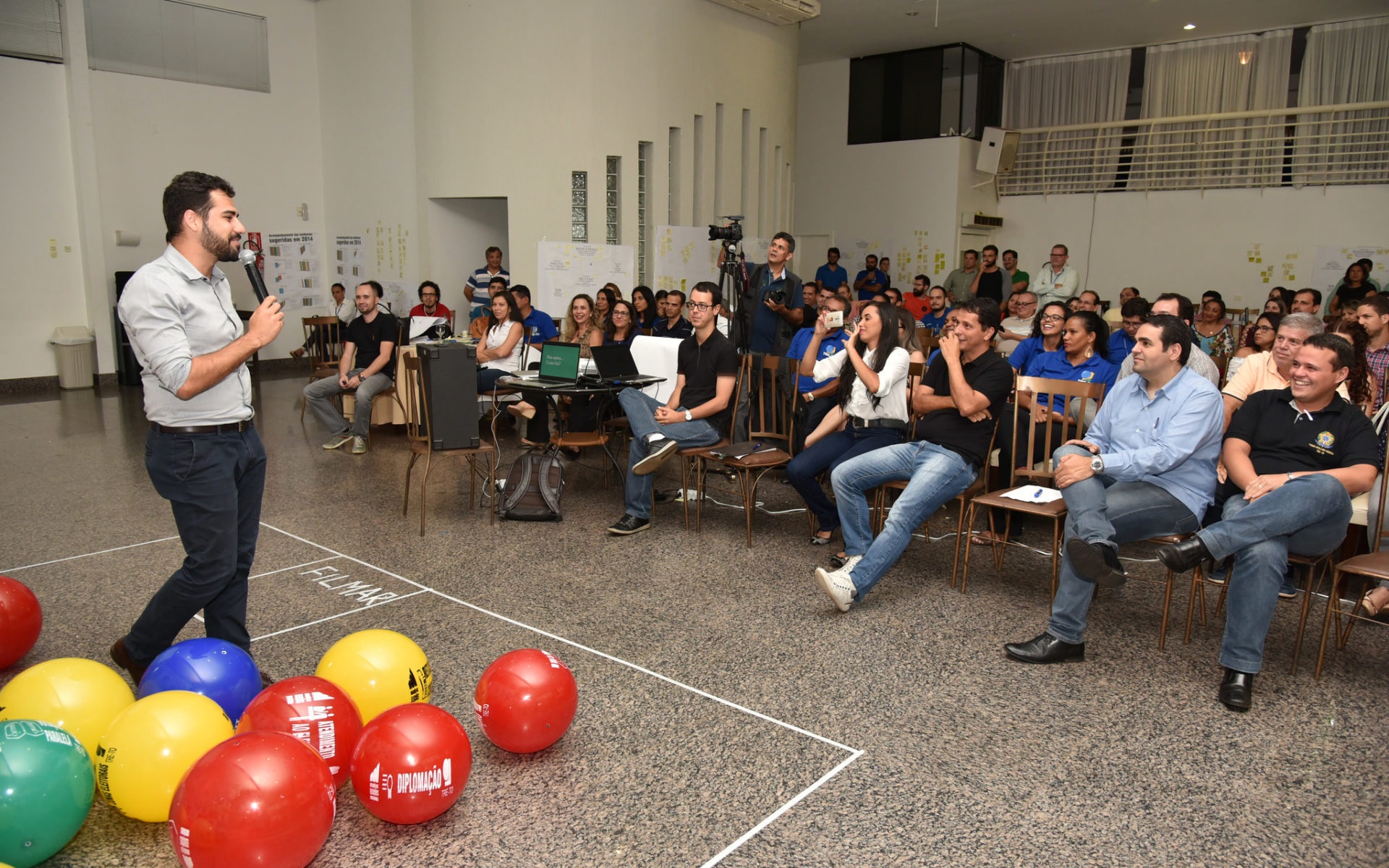A culture of innovation is born at TRE-TO
Despite only being in existence for a few years, the TRE (Regional Electoral Court) of Tocantins has one of the highest results in Brazil.
To evaluate the agency's performance during the 2016 Elections, we were invited by the institution to conduct an Innovation Workshop using Design Thinking. For two days, around 150 civil servants from the state's 35 Electoral Zones met to rethink the component processes of the Quality Management System (QMS) and ISO 9001-certified procedures.

Co-creation, Innovation and Perceived Value
During the immersion with the civil servants, we identified several points for process improvement, including cost reductions, employee engagement and effectiveness, but above all, how to create a more desirable voting experience for voters.
The result was not only more than 100 new ideas generated through a relaxed, co-creative and multidisciplinary process, but also the introduction of a culture based on more relevant services for people and more effective results for the state.
Would you like to bring this workshop to your company? Talk to us!



Photos: Lucas Nascimento/Ascom TRE-TO
From ego to empathy
As a young designer you may have heard this phrase a lot. But what does it mean? As someone who is pretty empathetic and self-critical, I never felt like it applied to me. But in retrospect, I think that's because most people use "ego" to describe inflated self-importance, when it's really just a word that describes how we understand our personal identity.
The distinction is important because letting go of your ego can be a nuanced practice in empathy. It's not just advice for arrogant jerks, it's essential for anyone working professionally. As a designer, my thoughts, tastes and keystrokes obviously are part of the equation, but it took some time to figure out that I could not create work in a silo as a reflection of my "aesthetic."
To some of you this might sound like a bummer, but when you take on a client's challenges and their point of view, you will have to think differently. You will find new approaches and you will grow. But more on that later.
"As a young designer you may have heard this phrase a lot. But what does it mean? As someone who is pretty empathetic and self-critical, I never felt like it applied to me."
Ernst Neufert in "The art of architectural design".

OK, but what does this have to do with my brand?
As a young designer you may have heard this phrase a lot. But what does it mean? As someone who is pretty empathetic and self-critical, I never felt like it applied to me. But in retrospect, I think that's because most people use "ego" to describe inflated self-importance, when it's really just a word that describes how we understand our personal identity.

As a young designer you may have heard this phrase a lot. But what does it mean? As someone who is pretty empathetic and self-critical, I never felt like it applied to me. But in retrospect, I think that's because most people use "ego" to describe inflated self-importance, when it's really just a word that describes how we understand our personal identity.
From ego to empathy

As a young designer you may have heard this phrase a lot. But what does it mean? As someone who is pretty empathetic and self-critical, I never felt like it applied to me. But in retrospect, I think that's because most people use "ego" to describe inflated self-importance, when it's really just a word that describes how we understand our personal identity.
The distinction is important because letting go of your ego can be a nuanced practice in empathy. It's not just advice for arrogant jerks, it's essential for anyone working professionally. As a designer, my thoughts, tastes and keystrokes obviously are part of the equation, but it took some time to figure out that I could not create work in a silo as a reflection of my "aesthetic."
Famous last words
As a young designer you may have heard this phrase a lot. But what does it mean? As someone who is pretty empathetic and self-critical, I never felt like it applied to me. But in retrospect, I think that's because most people use "ego" to describe inflated self-importance, when it's really just a word that describes how we understand our personal identity.
Hope this answers some of your questions, Dmitro.
- Author's name
